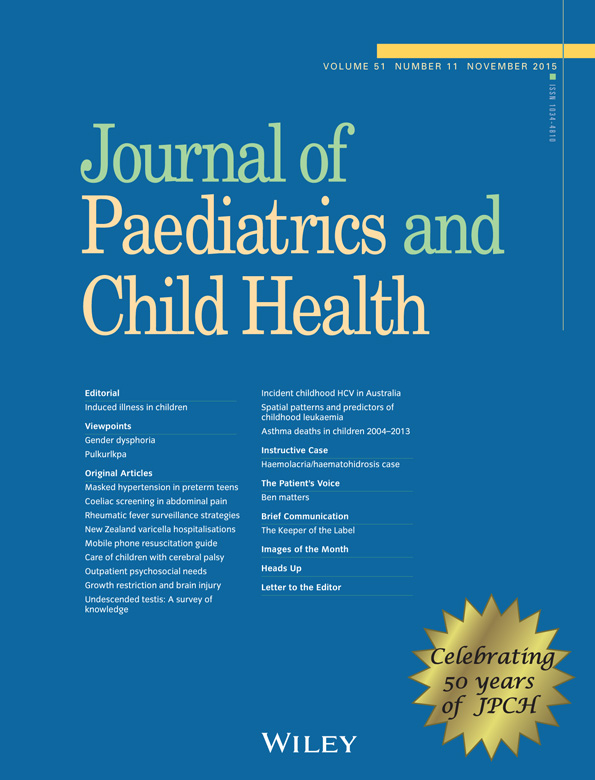Randomised controlled trial of a mobile phone infant resuscitation guide
Abstract
Aim
The aim of this study was to develop a mobile phone resuscitation guide (MPRG) and to evaluate its use during simulated resuscitation of a mannequin.
Methods
An MPRG was developed using EpiSurveyor. A randomised controlled trial was performed in school-going children aged 15–16 years. All subjects were taught infant CPR skills using the American Heart Association Infant CPR Anytime. Two weeks later, the students were randomised to use of MPRG or not, and their CPR skills were re-assessed. The assessment was conducted using previously validated checklists.
Results
Twenty-one students participated in this trial. The MPRG group performed notably better in the areas of calling emergency services (80% vs. 36.4%, P = 0.044), completing sufficient CPR cycles (90% vs. 45.5%, P = 0.047) and following the correct CPR sequence (60% vs. 9.1%, P = 0.013). No difference in resuscitation skills of participants was observed.
Conclusions
We have shown that participants were more likely to call emergency services if they were using the MPRG. Further trials are needed to investigate the utility of mobile phone guides and whether or not they can reduce the time taken to contact emergency services as well as if they can sustain correct CPR sequence in an in-vivo setting.




